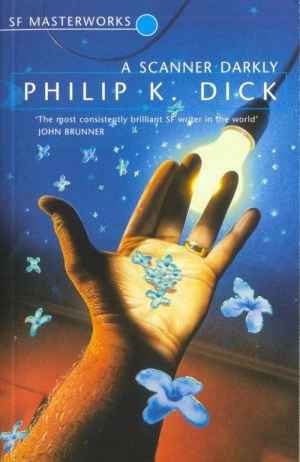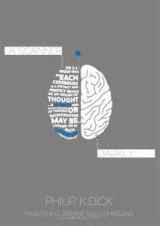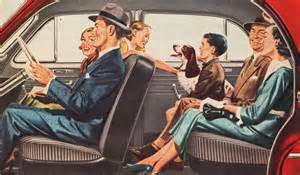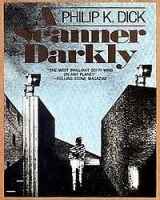A Scanner Darkly: Drug Culture, and American Paranoia

While you may be familiar with Philip K. Dick’s work as the inspiration for movies like Minority Report or Blade Runner, you may not know his book A Scanner Darkly. The novel, although not as popular perhaps as other works, should still be read for its own sake. This novel presents a vision of post-modern American culture that proves Chilean novelist and essayist Roberto Bolaño’s quip that Dick represents in American literature: “Thoreau plus the death of the American dream”. The ghost of Thoreau haunts Dick’s text, not as a symbol of hope, but rather as a long gone dream.

Although published in 1977, A Scanner Darkly remains a critical comment on the status of the American dream and of current American drug culture, and who better to know than Dick himself who struggled with drug addiction through most of his life. The sediment of Thoreau’s long gone spirit in post-modern America appears perhaps no more forcibly than in recounting Robert Arctor’s “former life.” We are given not to much information on this protagonist’s past life and motivations to become a drug addict in California, but from the little we do get we can extract a great amount of meaning. Dick describes in Arctor’s the decision to leave the comforts of suburbia for the “excitement” of a drug-induced existence. Instead of entering the woods of Walden to escape “quiet desperation,” Arctor, an American of the industrialized and media ensconced post-modern era, only finds recourse in the sublimity of drug culture.
Dick’s vision is a grim one for American culture here, where state power and drug addiction are intimately linked, and where the very ideals of individualism and self-possession are shown to be a myth. Bob Arctor, who is also special agent Fred tracking Bob (i.e. tracking himself), is literally split in two through his use of the drug Substance D. As the narrative goes on, we witness the downfall of this man who, after all, just wanted to escape the bondage he felt in suburban culture. We shall restrict our analysis here to a short section where Dick gives us insight into Bob Arctor’s former life. This recourse Arctor only finds indrug culture in Dick’s writing, as we shall also explore, is also linked to the paradox post-modern men find themselves in where state propaganda works both to idealize submissive suburbia and the violent machismo of covert sector operatives in popular fiction.
Dick writes: “It flashed on [Bob Arctor] instantly that he didn’t hate the kitchen cabinet: he hated his wife, his two daughters, his whole house, the back yard with its power mower, the garage, the radiant heating system, the front yard, the fence, the whole fucking place and everyone in it. He wanted a divorce; he wanted to split. And so he had, very soon. And entered, by degrees, a new and somber life, lacking all of that” (Dick 64-65).

What is the main complaint of Arctor’s former life? As Dick notes “It had been too safe” (Dick 65). This complaint makes more sense when taking into consideration Thomas Melley’s observation of the feminization of the American public sphere since the Cold War. The paradox for masculine psychology in America is quite striking, for the images of independence and strength promulgated in the fantasies of the covert sphere, or the sector of the government citizens are aware of but not allowed to know the operations of (e.g. the CIA), are those of generally strong violent men. These strong men (like Jack Bauer, James Bond, etc.) who live behind the governmental fog we only dimly apprehend act dangerously and act heroically through their own moral agency (which is linked to the covert sector’s inherent morality in the popular imagination). However, the “common” American man’s highest desire, that scrawny body watching the screen of idealized masculinity, is towards the equally propagandist images of safe suburban paradise, “the front yard, the fence…,” in lived experience. How can one be macho in suburbia, where the greatest value is its supposed safety? How can one be content in this divided image of what it means to be a virtuous American man (both submissive and violent)?

Is it possible for the mass of men who are celebrated by the propaganda of suburban culture for leading lives of “quiet desperation” under the will of the paternalistic state’s power to find any means of escape in its equally held value of rugged individualism? The safety of suburbia, the intense paranoia over finding safety in the American psyche, has overtaken the paradoxical individuality which runs through the dangerous adventure Americans praise in covert agents. Conspiracy and espionage narratives emerge, in this sense, as a means of preserving the individual amidst the reality of conformity. Paranoia, then, is always present in America’s cultural dialectic; even the “straights” (those in Dick’s narrative not on drugs) do not want to see the druggies for fear that they see more of themselves then they are comfortable with in the druggies’ despondency. Both druggies and straights are doped into submission, one by literal drugs, the other by the state machinery of propaganda and consumerism.

Drugs emerge in Dick as the fantasy escape to the realm of liberation denied in the suburban ideal, the new adventure towards an individual life which, in reality, only further divides the individual in two. Drugs attract Americans who believe, with the ideology of individual freedom, and the disillusionment of the paranoid and feminized suburban culture, that easiest route to individual freedom is through the stimulus suburban culture most explicitly points to as detrimental. Drugs, in this vision, are a rebellion against the suburban ideal, which is, after all, an almost Hobbesian desire for safety. But also, drugs are paradoxically tied to America’s reliance in external stimuli for some diversion, for some false sense of liberation amidst the paranoia that arises from America’s culture. Arctor’s desire for individualism and adventure through the drugs only divided him into two conflicting and competing identities and got him more reliant on external stimuli for a happiness that literally destroys his brain.
Dick invokes the spirit of Thoreau in Arctor’s plight exactly to bring this post-modern paradox of the American psyche which desires individuality as much as suburban safety, and to critique the American state’s ability to provide what it ostensibly purports to make available to its citizenry: “the pursuit of happiness.” Happiness in any real sense is denied Dick’s drug-addled protagonist, and in evoking the spirit of Thoreau, the reader only realizes better how any turn towards that sublime individualism within post-modern American culture is merely illusory, fueled by the destructive drugs of state propaganda and Substance D.
Work Cited
Dick, Phillip K. A Scanner Darkly. New York: Houghton Mifflin Harcourt Publishing, 2011. Print.
Melley, Timothy. “Introduction.” The Covert Sphere: Secrecy, Fiction, and the National Security State. Ithaca: Cornell University Press, 2012. 1-43. Print.
What do you think? Leave a comment.











Read it as a naive young thirteen year old and I’m sure there’s plenty about it that I missed at the time. But it was the first book I remember to really emotionally affect me even after I’d put it down, and it started me on my lifelong love affair with stories which end with a lingering sense that deep down, everything isn’t going to be okay.
I wouldn’t have it any other way.
What I find interesting about Scanner in comparison to other PKD novels is that the agent for the breaking up of identity and alternate realities is a drug. We are presented with a character who is unsure of his identity, unsure of what is objective reality. If you look at PKD’s enduring theme it often involves a protagonist breaking through into another plane. This is rendered less “sci fi” in Scanner, but that overall suspicion of “objective” reality struck me as the essentially Dickian aspect of the novel.
I’m reminded of is what a friend of mine once said about drugs being a substitute for religion. I think at the time he was referring to the way we revered pot as a sort of spiritual experience along with its rituals and lifestyle. This has stayed with me but I see it now as being a distraction, a filter, a way of seeing the world, yourself and others “through a glass darkly”.
What Dick is saying, in my estimation, is that they were wrong, we are wrong for using drugs in the search for meaning. It has been confused with the drive to destroy or escape the self. It kills the ability for empathy, which for Dick was the defining human characteristic, and turns the mind inward on itself. It turns you against yourself and the others around you creating paranoia. This, it seems to me, is then effectively used as a tool by whoever – New Path, the government, a maelevolent force – seeks to control.
To me Scanner is a dystopian fiction and like in Brave New World or many other dystopias, drugs are a means of control.
My favourite Dick book and one of my favourite SF novels ever. Makes me want to re-read it again soon…
So – a while back I tried to watch the film version of this. I made it through, but frankly, I found it one of the least engaging movies I’ve experienced. Not really sure why, but there you go. I get that it’s kind of meant to be disjointed and disorientating, but for my money the story got lost under the weight of the moral ambiguity.
Is it still going to be worth my while trying the book?
Dick’s books are not plot driven, and you probably won’t enjoy them unless you have a real tolerance for ambiguity. Even then, it takes more than one reading to get into most of the books. Those of us who love them love the books for the rapid fire of brilliant ideas, unstopping, almost uncountable. My favorites are UBIK and Do Androids Dream of Electric Sheep. They may also be the most accessible.
A brilliant book; funny, wise and horribly sad. Possibly the best book about ‘the life’ ever written.
It certainly played a part in my deciding that sitting on my arse, taking drugs and talking bollocks was, perhaps, not the best way to spend my life.Thankfully i was still young enough to knock it on the head.
PKD was a brilliant fantasist but this one was from the heart.
The film was shite, though…
PKD: “funny, wise and horribly sad.” Just like Nietzsche (though with less of a chip on his shoulder).
The book is brilliant – a strange, haunting trip into narcotic darkness. A real sense of minds teetering on the edge. I have no interest in sci-fi at all, but really rate it as one of the great counter culture novels.
I always confuse this with Scanners Live in Vain. Which is miles better…
Yep, this is one of his best ones (though I’d put Ubik and Flow My Tears even higher). The notes at the end are kind of sad, but, as with all things Dick, you can’t help wondering if it’s a bit overdramatised. Dick teaches us not to take anything at face value, and that should probably extend to some of his own claims.
Yes- people who knew him well say that his forays into psychedelia were largely, or even entirely, imaginary – and played for effect.
I’ve heard the same.
My friend went on a huge Dick Kick while we were in high school and I remember watching this movie with him at the time. I should probably check it out again as I pretty much remember nothing from it outside of it’s art style.
No, I don’t like it.
Overall, I really did not like this book. The conclusion I took away from it is that although Philip K. Dick is certainly a notch above most pulp science fiction writers, infusing his work with philosophy and humor and a few big ideas, he is wildly, wildly overrated. It’s the same feeling I had when I finished the only other book I’ve read by him, GALACTIC POT-HEALER; reading various short stories of his; and after seeing the movies based on his work. Give me Kurt Vonnegut over this guy any day.
I give Dick credit for keeping this story readable and quick-moving, but the whole experience felt mostly pulp to me, pulp and pointless and a little bit contrived. I mean, the drug has only one source? What drug on the planet has only one source? What a Hollywood copout, and of course he discovers that one source before the end and will take it back to his police friends and the entire situation will be remedied. The war on drugs, this drug anyway, will be won. That right there shows Dick dodging reality and turning the complicated truth of drug supply and addiction into a conveniently remedied movie-style trope. If I kill the king of the vampires, then all the other vampires die–it’s that easy.
This is, by Dick’s own admission, a drug memoir dressed up as sci-fi so it would sell to his audience. AND DRUG MEMOIRS ALMOST ALWAYS SUCK. Unless you’re going to go insanely extreme, a la Hubert Selby Jr., or lie boldly and call it nonfiction like James Frey, it’s pretty hard to rise above the dreary reality and make the subject compelling. I do not think this book rises above that reality, and I was really disappointed by my slow realization of that–it’s often funny-clever, but never really laugh-out-loud, and its few important ideas could probably have been better expressed in an essay.
Read somewhere that John Lennon was a K Dick fan and at some point considered funding a film of “The Three Stigmata Of Palmer Eldritch”. Now that would have been interesting!
I’ve enjoyed several of PKD’s books, and thoroughly enjoyed the film of this book. It was incredibly sad, though. Especially the author’s notes at the end.
PKD is an acquired taste, his grim vision of the future amazingly ties in to what actually is happening and many people cannot stomach this. The film was good although I found the rotoscoping a bit nauseating at times, it did however catch the true feeling of government control and power as indicated by the novel.
I think that a sort of anti-Thoreau description is accurate.